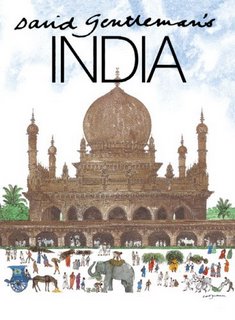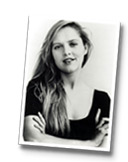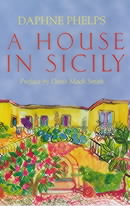Michael Sissons, veteran literary agent
Also in today's blog
David Gentleman…Judith Krantz…Louise Bagshawe
A house in Sicily
Two books to avoid
Agent's distinguished list of clients
Searching for a photo of Sir Max Hastings for last Sunday's blog led me to the web page of his agent Michael Sissons at Peters Fraser & Dunlop.
Surely there can't be a literary agent in the world with a more distinguished list of clients? Of the 63 writers listed, three are Companions of Honour, six are Commanders of the Order of the British Empire. Lords, knights, generals and professors galore. Twelve of the 63 are dead but far from forgotten, two of them being Evelyn Waugh and Alan Clark whose estates are among the many Mr Sissons manages.
The living clients of Michael Sissons include one of my favourite artists whose book David Gentleman's India was recently placed face-forward on some hanging shelves in the hall, the new home of 44 books about India and Nepal which, before I began a major reorganisation of our books, had become dispersed on shelves all over the house.

Only seven women writers are represented by Michael Sissons. They include Margaret Drabble, Ffion Hague, Lady Healey, Sandra Howard, Fiona MacCarthy and the late Dame Rebecca West.
The seventh woman writer is not one I should have expected to find among the great and the good of the Literary Establishment. But then who would expect a leading literary agent to be an enthusiastic rider to hounds and "a pivotal member of the Countryside Alliance"?
The name that surprised me on Michael Sissons' client list was Louise Bagshawe whom I had until then regarded as the Judith Krantz de nos jours.
Judith Krantz autobiography
For those whose memories of the book world don't go back as far as mine, Judith Krantz has been described by Publishers Weekly as "author of such steamy, sex-drenched bestsellers as Scruples, Princess Daisy and Mistral's Daughter."
Mistral's Daughter was published in the US in 1982 and I have a copy of the 1983 Sidgwick & Jackson hardback on my shelves with various clippings pasted to the flyleaves. In March 1983, The Bookseller reported "Sidgwick puts £20,000 behind Judith Krantz".
The PR drive for the 95,000-copy first print run included a 10-part serialisation in Woman magazine, features in Good Housekeeping, Vogue and the News of the World magazine, plus a window display competition with the prize a romantic holiday for two in the south of France.
When the Corgi paperback came out in May 1984, it had a £50,000 promotion and the initial print run was half a million. Which might not sound anything extraordinary now, but certainly was 20 years ago.

Although Judith Krantz was not one of my favourite novelists - her characters, though entertaining, never seemed real to me - I should have bought her autobiography Sex and Shopping: The Confessions of a Nice Jewish Girl when it came out in May 2000 had I known about it. But it seems there was no UK edition and perhaps I was travelling and out of touch with the book world when the US edition appeared.
Louise Bagshawe
There's a page on Louise Bagshawe's website which offers the most succinct and sensible advice about getting published I have come across in eight years of visiting authors' sites. She writes - "I got my agent by picking his name out of a book and sending him a sample chapter and a covering letter."
When I asked her to elaborate, she replied
"I approached 13 agents simultaneously by (individually tailored) letter. Nine expressed some degree of interest. Michael called me in to see him and told me he was not interested in a beauty contest. Of course I was thrilled to have him represent me. Friends in the trade had already told me he was the best agent in the country. He has represented me throughout my career and I am devoted to him and consider him a friend. He makes all the decisions on my UK contracts - I leave it entirely up to him."

Ms Bagshawe, who has recently returned to the UK after living in New York for some years, is President Emerita and co-founder of the Oxonian Society which describes itself as being "founded with an eye to the Oxford Union, the world's greatest student society. Our aim is to provide the kind of world-class speakers who grace that body to a wider audience in America. The Oxonians who founded the Society wanted that experience, which they had enjoyed in Oxford, to continue."
Her forthcoming book, Sparkles, is described at Amazon as "Crossing decades and continents… the totally compelling story of the Massot family. Fabulously wealthy, internationally adored, the Massots own one of the last great aristocratic jewellery firms in Paris. But where is its owner Pierre, missing presumed dead for 15 years? And, what will happen to his beautiful young widow Sophie? The answers lie rooted in the past and form part of the future - in a way no-one could ever have guessed…"
I've picked up several interesting comments about the publishing scene, past and present, by Michael Sissons and shall be discussing them in a future blog.
A House in Sicily
Reading an obituary in one of the UK's broadsheets yesterday morning led me to yet another book I missed when it came out and look forward to reading.

"In 1999, in her late eighties, Daphne Phelps published a delightfully anecdotal account of her life, A House in Sicily. In it she described her life at Casa Cuseni and the visitors who came to stay there. There were also descriptions of Sicilian friends such as her housekeeper, Concetta Cundari, and a local mafia boss, Don Ciccio, who took it upon himself to protect the English signorina by simply placing his cap on the bonnet of her car, thereby ensuring that no harm would come to her."
Two books discriminating readers will avoid
Two books, mentioned in
Book Trade News Digest this week, I shall not be reading are
a) yet another book by a prostitute, this one described as "a high-end call girl, turning tricks with up to five men a day in an apartment in a swank neighborhood of Sao Paulo, Latin America's financial hub" and
b) a 10-year-old's guide to how to survive parental divorce.
The author of the first book is said to have reformed. Let's hope she got out without picking up a drug habit or venereal disease, the usual fate of prostitutes at all levels of that sordid occupation .
My guess is that the second book has been masterminded by the child's mother. Judging by the story in The Guardian, the advice it contains is typical of the stuff dished out by agony aunts and shrinks.
Earlier this year Grumpy Old Bookman had some comments to make about the book's publisher in a piece headed "Can we trust The Times any longer?"
